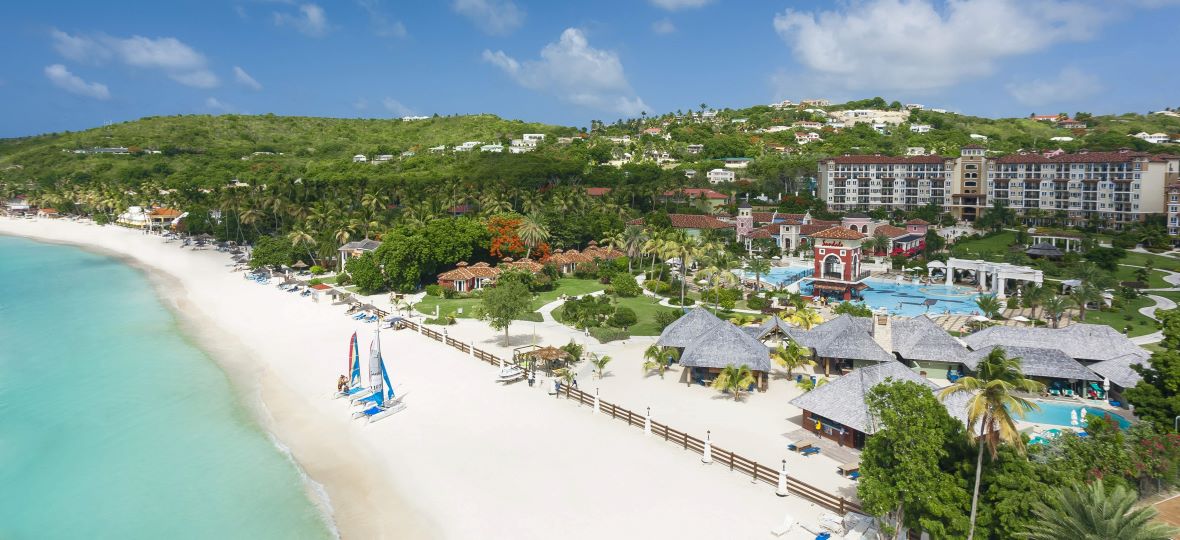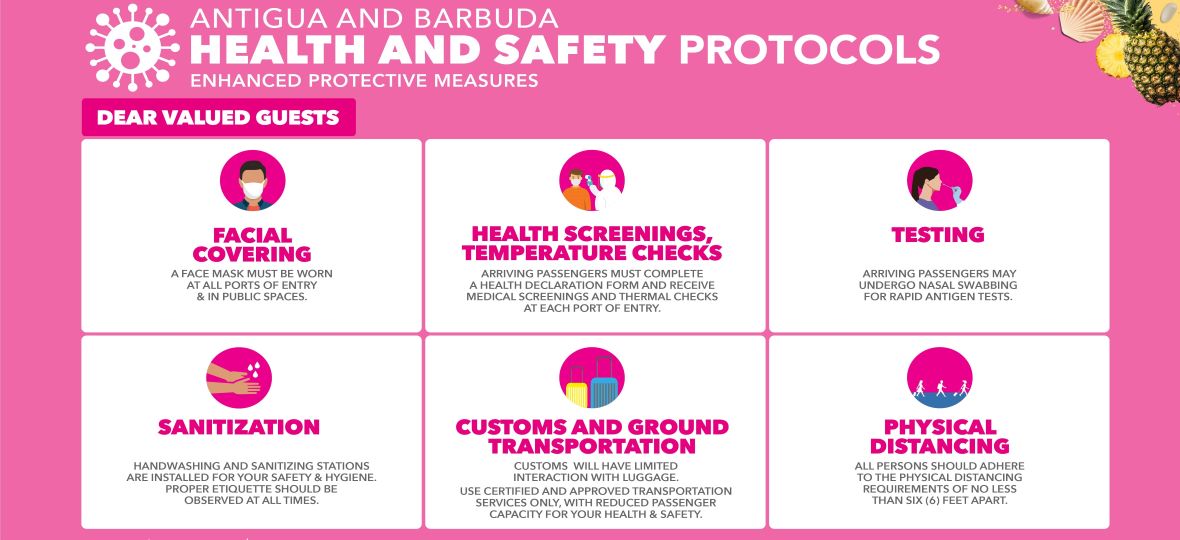With the arrival of flight AA2405 from Miami on June 4, Antigua and Barbuda got back in the tourism game. The tiny Caribbean nation opened its borders to all international travellers after being closed since mid-March due to the coronavirus pandemic making the islands the first non-US destinations in the region to due so.
With more flights (including from Britain, other US gateways, and Canada) anticipated in July, tourism officials are casting a careful eye on the re-start, which is being conducted with a “phased and controlled approach.”
It’s also an endeavour being closely observed – like a metaphorical canary in a coal mine – by neighbouring Caribbean islands as they prepare to re-open their own borders (for example Jamaica on June 15, Bahamas on July 1 and Turks and Caicos July 22; St. Lucia opened only to US visitors on July 1 and will enter Phase 2 on Aug. 1).
In Antigua and Barbuda, a new series of travel safety protocols impact every element of the visitor experience, from arrivals at ports of entry, through ground transfers, resort accommodations, restaurants, tours and attractions. They include:
ARRIVAL
• All arriving passengers must have a mask in their possession for use on disembarkation, which must be worn in public areas throughout their stay.
• Arrivals must complete a health declaration form. Screenings and thermal checks will occur on arrival and passengers may be asked to undergo coronavirus testing on arrival.
• Only people on airport business will be allowed into the arrival hall until September.
• Access to elevators in the airport is limited except for families with small children and the physically challenged.
TRANSFERS
Up to four members of a family are allowed in a single vehicle while larger commercial passenger transport vehicles are permitted to carry only 50% of the vehicle seating capacity. Vehicles must be kept clean and sanitized after each trip, will be equipped with hand sanitizer, and certified by health inspectors through random inspections.

ACCOMMODATION
About half the island’s properties re-opened on June 4, including The Admiral’s Inn, Antigua Village, Buccaneer Beach Club, Hawskbill Resort, Heritage Hotel, Hodges Bay Resort & Spa, Tamarind Hills, Hammock Cove Resort & Spa and Sandals Grande Antigua.
• Hotels, resorts, villas and home rentals must be certified by the Ministry of Health Wellness and the Environment prior to reopening.
• New safety measures include online check-in and resident medical practitioners on site, and social distancing norms.
• Training and certification for hotel and tour staff members.
• Restaurant dining protocols include enhanced cleaning and disinfecting of frequently touched surfaces, physical distancing measures, and will offer a la carte dining and delivery or takeout services instead of buffet.
SAILING
• Passengers arriving by sailing craft (private yachts/Ferry Services) are subject to the guidelines issued by Port Health can only enter at the Nevis Street Pier.
Minister of tourism Charlies “Max” Fernandez said during a recent virtual meeting with journalists that included Travel Industry Today that the pandemic has made 2020 “the most challenging year” in the history or Antigua and Barbuda, particularly coming after a record 2019 and with this year poised to perform even better.
“Tourism is the economic lifeline of our country (employing a third of all Antiguans), he said. But he added, “Despite the severe economic strain on our nation, we waited until we were in a position to reassure both our citizens and our visitors that every precaution is being taken to ensure a safe and enjoyable holiday experience. The health and safety of our citizens and our visitors remains our top priority.”
To that end, Fernandez says that tourism officials have had to “rethink and re-imagine the delivery of services across the board,” based on expert health and safety advice and guidelines produced by a new collaborative tourism industry recovery task force.
Nevertheless, “We have a long journey ahead of us to rebuild our industry,” he admits.
“This is still a highly unprecedented time and we realize that we are now entering a new and ever-changing landscape” where both the priorities of the travel industry and travellers have shifted, says Colin James, CEO of the Antigua and Barbuda Tourism Authority, who noted that the tourist board made the most of its pandemic-induced down time to conduct market research and hone its marketing strategies.
The industry’s part, he says, is to help restore consumer confidence, in part by making them feel as safe as possible, staying top of mind with potential visitors, and, of course, to prevent the spread of COVID.
Meanwhile, he says research suggests there are three types of “quarantine consumer”: action-oriented, curators & escapists, and health vs wealth categories – all of whom must be addressed by tourism suppliers, through both communication and engagement.
“People still want to travel and they still want to experience a destination, but their travel priorities have changed,” he says. “Deals and promotions are less significant than health and safety: touchless solutions and cleanliness are now key.
“Our challenge is to manage the expectations of guests… Our message is they can have the best of what Antigua & Barbuda have to offer: wonderful weather, beautiful beaches, outstanding service, friendly people, inspiring cuisine, and all of that with safety and secure and space. “


